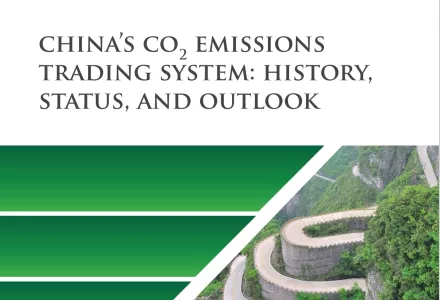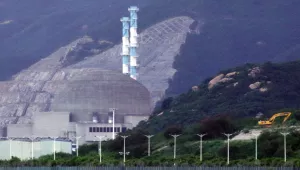
English and Chinese versions of the full paper may be download at the top of the page.
Valerie J. Karplus is a global expert on climate-change and energy policy in China and a faculty member at Carnegie Mellon University. Her paper builds upon a research workshop conducted by the Harvard Project on Climate Agreements in October 2020, focusing on China’s national emissions trading system (ETS). The workshop was conducted in collaboration with Tsinghua University’s Institute of Energy, Environment, and Economy — directed by Professor Zhang Xiliang. Information on the workshop, including most presentations, is here. The workshop and Professor Karplus’s paper were supported by the Harvard Global Institute.
Abstract
China’s emissions trading system (ETS) for carbon dioxide (CO2) will become operational in mid-2021. The system targets reductions in carbon intensity via a tradeable performance standard, initially in the power sector, with expected expansion to other industries. Plans to convert from a rate-based to a mass-based system are underway. This paper describes the trading system’s history, design, rules governing implementation, and anticipated developments over the next decade. The ETS is expected to support China’s goals of reaching peak CO2 emissions by 2030 and of achieving carbon neutrality by 2060.
Karplus, Valerie J. “China’s CO2 Emissions Trading System: History, Status, and Outlook.” Discussion Paper, Harvard Project on Climate Agreements, June 2021.


